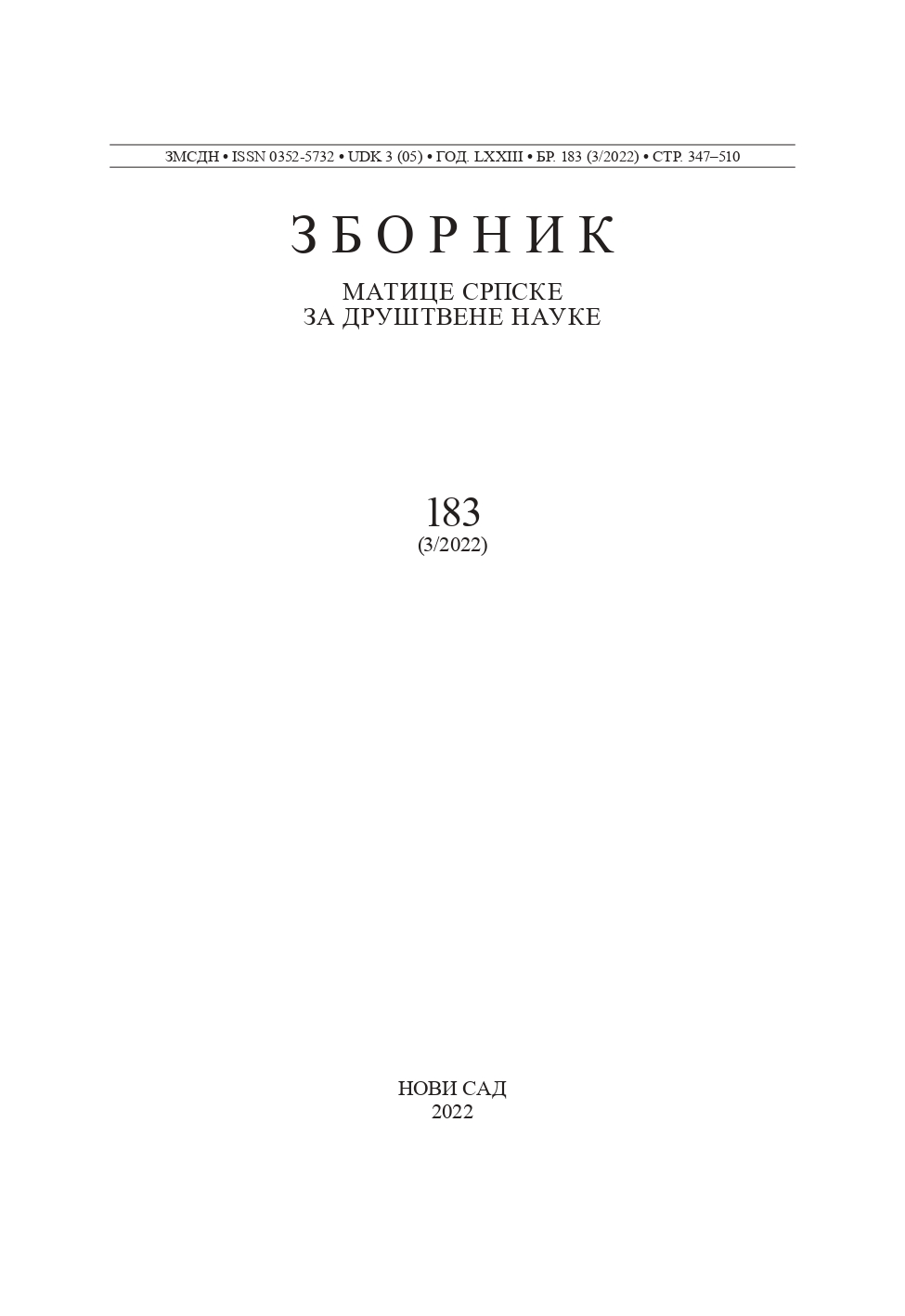ДЕСТРУКТИВНЕ РЕФЛЕКСИЈЕ ЗАКОНОДАВНОГ ОКВИРА РЕПУБЛИКЕ СРБИЈЕ НА ЗАРАДЕ ЗАПОСЛЕНИХ ЛИЦА У ПРИВАТНОМ СЕКТОРУ КАО НАГРАДА ОДАНОСТИ ПРИВРЕДИ У КРИЗИ ИЗАЗВАНОЈ ПАНДЕМИЈОМ ВИРУСА SARS-COV-2
DESTRUCTIVE REFLECTIONS OF THE LEGISLATIVE FRAMEWORK OF THE REPUBLIC OF SERBIA ON THE WAGES OF PRIVATE SECTOR EMPLOYEES AS A REWARD TO THEIR DEVOTION TO THE ECONOMY IN CRISIS CAUSED BY THE SARS-CoV-2 VIRUS PANDEMIC
Author(s): Tatjana JovanovićSubject(s): Law, Constitution, Jurisprudence
Published by: Матица српска
Keywords: legislative framework; wages; private sector; Republic of Serbia. JEL classification: H12; J31; K31; K34; M41; M48
Summary/Abstract: Among tne many problems which follow the economies of countries around the world, and primarily countries in transition, the end of the first quarter of 2020 brought an unexpected scenario – pandemic caused by SARS-CoV-2 virus. The pandemic did not bypass the Republic of Serbia, nor her economy. Living in uncertainty and fearing for own life and families life, but also the people around them, not a small number of employees in the private sector were devoted to employers who did not suspend business during the state of emergency in the Republic of Serbia. However, the legislative framework of the Republic of Serbia does not seem to adequately recognize their devotion and sacrifice, as one of the key links in maintaining economic activity in extraordinary circumstances. Most of the provisions of both laws and bylaws passed before, but also during the declared state of emergency, have a very destructive effect on wages, and the right of private sector employees to use, dispose of and enjoy their entire, dignified wages. The right of employees to increase wages based on time spent at work for each full year of employment with the employer, past years of work, the right to payment of real food costs during work and the costs of arrival and departure from work, are just some of the more specific areas, provisions of which have long been on the side the “will” of employers. That the previous practice was mostly maintained even during the state of emergency is evidenced by certain acts adopted in the midst of the crisis. Thus, the enabled fiscal benefits “abduct” part of the wages of employees and give it to employers, and direct cash benefits create inequality between employees employed during the state of emergency and those that were not.
Journal: Зборник Матице српске за друштвене науке
- Issue Year: 2022
- Issue No: 183
- Page Range: 477-491
- Page Count: 13
- Language: Serbian

